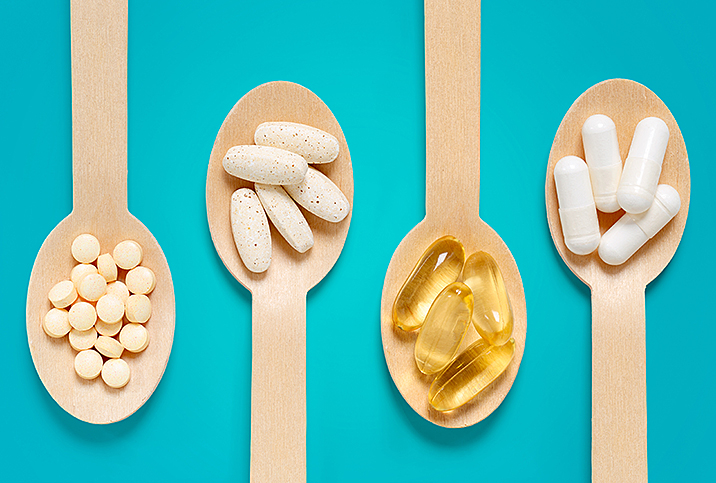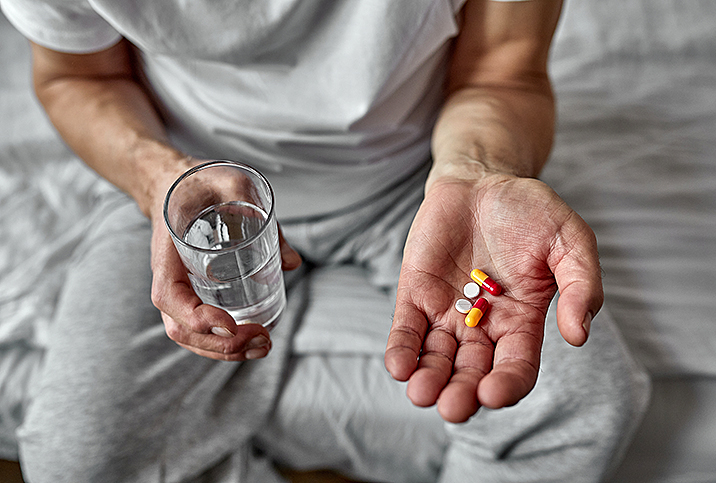Supplements for Sex: Myths & Misconceptions

Many people who experience sexual health problems turn to natural supplements that promise to improve sexual dysfunction without producing side effects such as those caused by medications and invasive therapies. However, not all sex supplements are safe and effective at helping people address certain sexual health problems.
Here are some common myths about sex supplements and the truths behind them. We want you to make more informed health decisions toward your goal of improving sexual function.
Myth: Tribulus naturally increases testosterone production.
Reality: Tribulus terrestris is a plant native to Europe, Africa and Asia that has been used medicinally for thousands of years to treat a wide range of health problems, including low sexual libido. Many natural supplements that contain tribulus claim to boost testosterone production in men; however, while it has been shown to increase testosterone in animals, there is no evidence to suggest it can increase testosterone in humans. If your goal is to increase sexual libido, tribulus supplements may help, but don’t use this supplement if you’re trying to boost testosterone.
Myth: Herbal ‘viagra’ is the same as prescription Viagra.
Reality: Some sex supplements claim to be natural, herbal forms of sildenafil (Viagra) that produce the same effects as the prescription drug. However, these supplements are not approved by the Food and Drug Administration (FDA) and can be dangerous for users who may want a nonmedical substitute. For instance, men who have cardiac conditions or who take medications to treat high blood pressure should not use herbal or prescription Viagra, due to various complications, including dangerously low drops in blood pressure. If you want to take any version of Viagra to treat symptoms of erectile dysfunction (ED), consult your doctor about treatments that are safe based on your health and medical history.
Myth: Sex supplements can reverse problems caused by medications.
Reality: Many prescription medications, including antihypertensive drugs (such as diuretics and beta-blockers) and antidepressants can cause side effects that reduce sexual libido. Some men and women take sex supplements to try to reverse low libido, erectile dysfunction, vaginal dryness and other sexual health problems caused by their medications. However, there is no evidence that suggests sex supplements can offset the sexual-related side effects of medications. Plus, the ingredients in some sex supplements may interact with the prescription medications you’re using, which can make them less effective or increase the risk of side effects. If you are experiencing adverse sexual side effects from any medications you are using, ask your doctor about the possibility of trying other treatments that won’t affect your sex life.
Myth: Natural supplements for sex are safer than pharmaceutical drugs.
Reality: There are cases in which natural supplements that claim to deliver solutions for sexual problems have fewer side effects than pharmaceutical drugs and are just as effective. However, in 2013, the FDA announced it had identified more than 330 dietary supplements that had been adulterated with active pharmaceuticals not listed on their label. For example, one commercially available supplement called Rock Hard for Men contained two potent prescription drugs that caused death when the same combination was used in other sex supplements.
Even if they’re not approved by the FDA, many natural supplements for sex may be considered safe. Effective? Who knows? The best strategy is to take the time to research supplements before you buy them, and always consult your doctor beforehand to make sure they’re safe and going to work alongside any medications you’re already taking.
Giddy Notice: Our medical experts have informed us that few supplements of this nature have been approved by the Food and Drug Administration (FDA). That is to say, statements and claims made about the efficacy or possible health benefits of these unapproved supplements have neither been evaluated nor reviewed by the FDA for safety and effectiveness. Furthermore, any statements or claims regarding the supplements are not intended to diagnose, treat, prevent or cure any disease. Our medical experts advise that before you use a supplement in any way, first consult with your healthcare provider to ensure you have full knowledge of appropriate dosages, if any, as well as any potential side effects or interactions with any prescription medications you’re already taking.

















